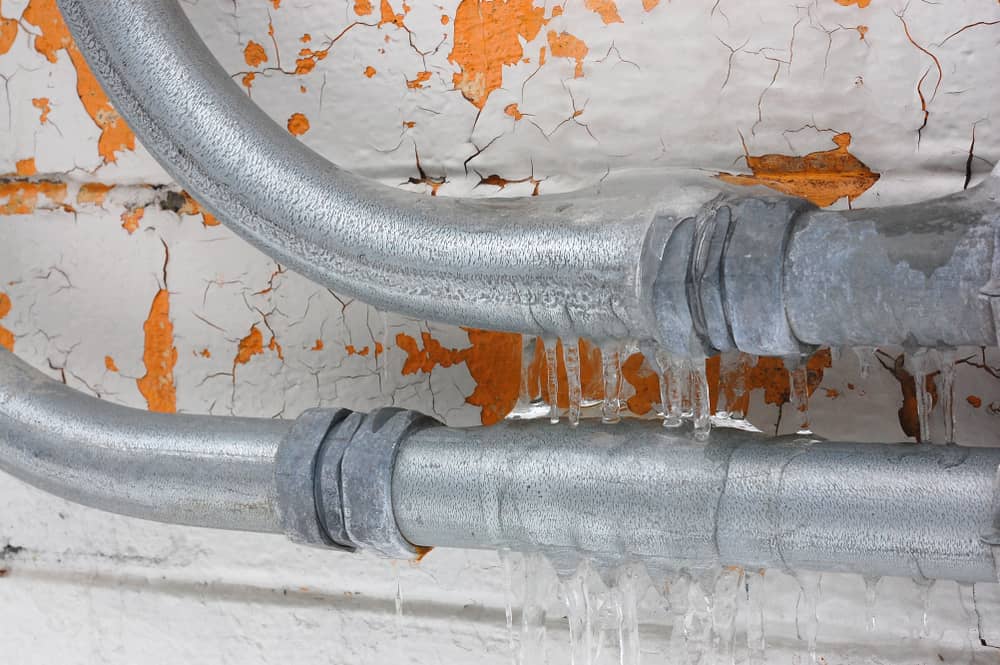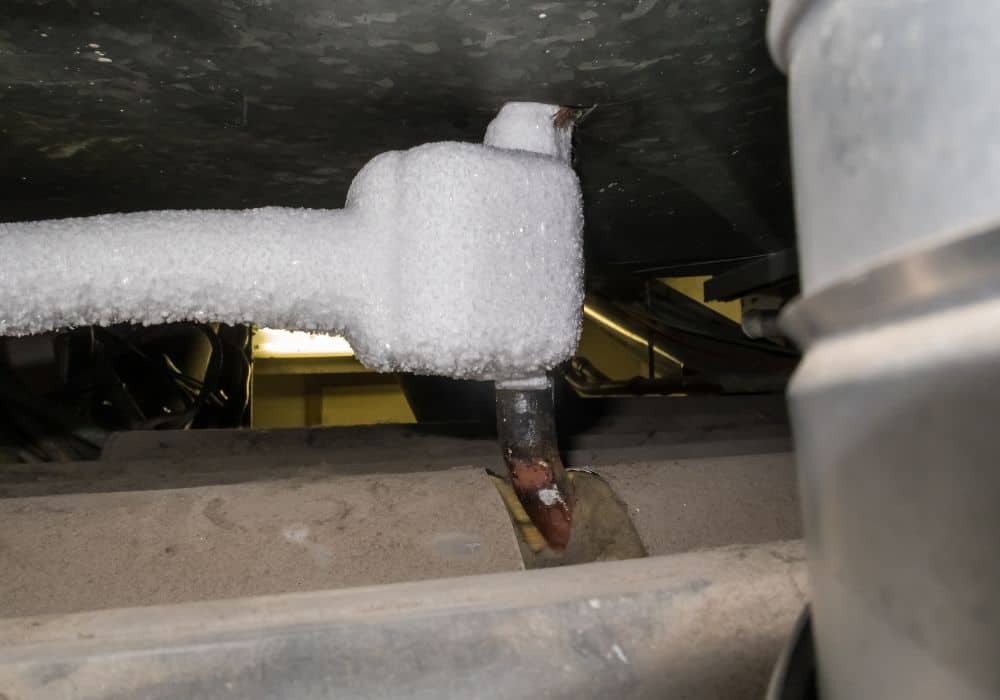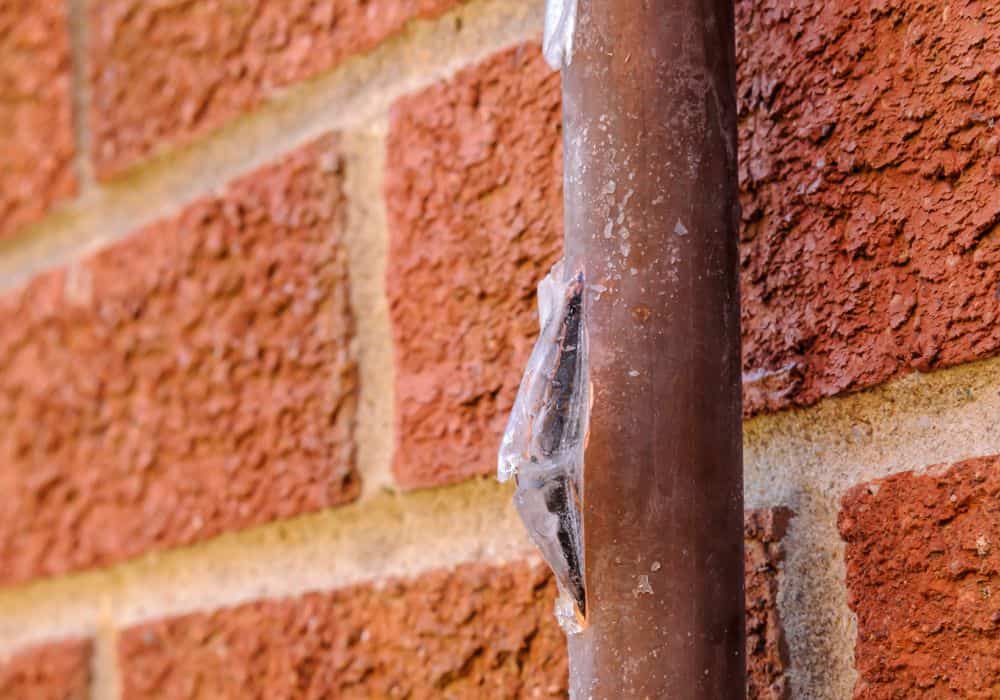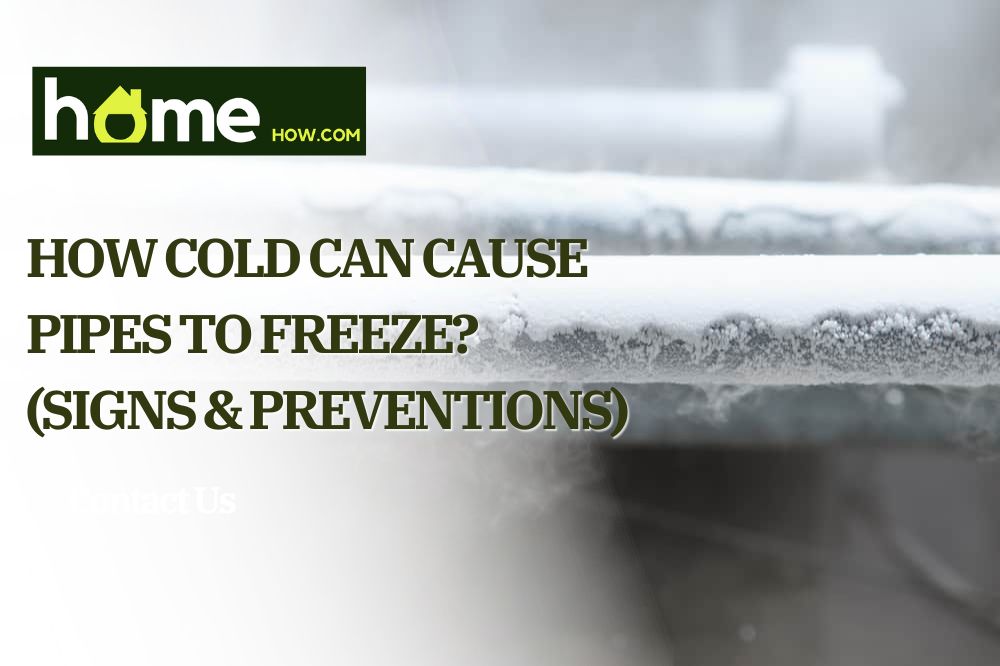When the weather gets colder, you may occasionally see your pipes leaking or getting damaged, and sometimes, you will wonder why. The most common cause is due to frozen pipes。
Well, there are many reasons why pipes freeze, all to do with weather, location, materials, etc. In this article, we will discuss some of them.
Reasons Why Pipes Freeze
Given the weather, your pipes may freeze during colder seasons. But, at what exact temperature will this freezing occur?
Is the temperature only one to blame or are there causes of this freezing? In this article, we will discuss some of the reasons why pipes freeze.
1. Zero temperature
Just like us who tend to freeze whenever the temperature drops below 0, pipes also do! However, take note that outdoor pipes are more likely to be frozen compared to indoor pipes.
For indoor pipes, when the temperature reaches below -6 degrees Celsius, that will be the time for it to freeze. This is because indoor pipes are more protected from bursts and damage because they are less affected by extreme outdoor temperatures.
2. South or north

Moreover, the location or area of your home also affects your pipes. If you are coming from the North, you should already have insulated pipes because the Northern area is prone to cold weather. The northern climate always falls below 0.
On the other hand, if you are from the South, you are more likely to experience freezing pipes because, usually, the weather in the South is hot and people do not always insulate their pipes. When the weather becomes cold, the faucets and pipes are highly affected.
To be more specific, the pipes that are prone to freezing are uninsulated pipes in the attic, outdoors, basement, and crawl space, and those that are made from copper or steel.
3. How well is your insulation
The way you insulated your home pipes greatly affects their chance of being frozen. If they are well-insulated, they can only freeze at extreme temperatures after 6 hours of being exposed to that temperature. Or maybe not. If they are truly well-insulated, they might not be affected at all!
However, if your pipes are poorly insulated, they can freeze within 3 hours of being exposed to a certain temperature.
4. Locations of the pipes

Aside from being located indoors or outdoors, your pipes that have no access to heaters or radiators are more likely to be frozen.
Because of this, always check to see that the area where your outdoor and indoor water supply lines are placed is adequately heated and that they are securely insulated using high-quality materials. By doing this, you can avoid both water line bursting and water line freezing in your house.
In addition, there are also these sprinkle pipes that are prone to freezing. Since these pipes are always exposed to cold temperatures or weather, as soon as the temperature reaches 0 degrees Celsius, expect them to be frozen. In normal areas, the time for them to freeze is around 4 hours from being exposed to the cold temperature but in colder areas, this period can be shortened.
5. Quality of materials
Specifically, the higher the quality of materials used for home insulation, the less chance your pipes will be frozen.
Sometimes, even if you insulate your pipes but you only use poor materials, they will always be prone to damage and freezing. This is the reason why many plumbing experts always recommend costly but durable materials.
Based on personal preference, I always choose quality over price because I believe that it is better to pay more for just one purchase than having the need to pay less but frequently.
Signs of Frozen Pipes
Every December, I always wondered why the water flow in our home is so slow. Then, I realized that it was during the cold months when pipes tend to freeze, thus, limiting the water supply.
Aside from low water supply, there are other signs of frozen pipes. Some of these are the following:
- Smelly drains and faucets
- The least water supply might have the damaged pipes
- Visible outdoor frozen pipes
For the last point, when you have seen one, take this as a sign that your other pipes may be damaged as well.
Pipes Freezing Vs Pipes Bursting
Well, we have to also discuss the difference between freezing and bursting as these two mean different things when it comes to pipes.
Pipes Freezing
Generally, freezing only means having your pipes get those icy looks. If you want to visualize it better, picture in your mind a block of ice in your fridge. At lower temperatures, they would freeze.
When freezing occurs, you can use an electric hair dryer to melt the ice blockages. You will know if you have done it well when full water pressure finally comes back.
Take note that you should never try using open flame or other flammable materials when melting ice as this is very hazardous and increases the risk of fire.
Pipes Bursting

On the other hand, bursting means damage to your pipes. As said, if the temperature is below 0 degrees Celsius, freezing will take place. But, if the temperature is below -6 degrees Celsius, bursting may happen.
When bursting occurs, your pipes are already opened or cracked. This means that leakage will already occur even after you unfreeze them. What you can only do now is replace the whole pipe or the section of pipe that was damaged. If you come to take a look at it, this is more expensive than deciding to insulate your pipes in the first place.
If you experience pipe bursting, the best thing to do is to call a plumbing professional. But, if you want to do the repair on your own, it is also possible. Just shut off the water pipeline or water supply and then use the necessary tools that can help you replace the damaged pipe.
If you are one of the homeowners residing in a condo or apartment, do not try to do the repair on your own. Instead, you’d better call the office and ask their plumbers to do the work for you.
How to Prevent Freezing of Cold Pipes
Keep in mind that it is always better to prevent than to fix it. This means that, if you do not want to spend much money on repairing your pipes, doing the following techniques would be better:
- Balance your home temperature. For example, if you have maxed your air conditioning system, take some time to heat inside your home.
- If you are going out, even just for a short vacation, the best thing to do is to switch off your main water valve.
- Whenever cold weather occurs, allow your faucets to drip small amounts of water. As much as possible, do not leave them stagnant, or else they will freeze!
- In addition to the above tip, you can use a tub to collect the dripping water. The sound might be irritating but be ensured that this will be worth your money.
- Consider a portable space heater or electric heating pad aside from your fireplace to melt the ice that froze your pipes. Do not think about your heating bill as this technique is not that costly.
- For your sprinkler systems, it is better to switch them off first during cold weather.
- If you are on a tight budget and you want to insulate your pipe in your own way, you can try using blankets, towels, or some thick old newspapers.
- Cabinet doors and garage doors should always be kept closed. If you have open areas in your home, find a way to have them secured to avoid cold air or wind from entering your home.
The best way to prevent frozen pipes is by insulating them. If you want to insulate your pipes properly, you can call a plumbing expert. If you want to insulate them on your own, you can do that as well!
Summer and Pipe Bursting
The bursting of pipes does not only occur during cold weather. In summer, bursting may happen too! At severe temperatures, pipes are prone to bursting. This is the reason why it is very important to balance the temperature inside and outside your home.
In order to avoid the bursting of pipes during summer, you should always check your plumbing system if you do not know how you can hire an expert to do so.
Final Thoughts
Indeed, it is normal to experience frozen pipes due to cold weather. Usually, temperatures below 0 degrees Celsius can freeze your pipes. But, below -6 degrees, your pipes can burst. However, this event can be prevented as long as you insulate your pipes using high-quality materials.
Aside from temperature, other causes of freezing and bursting pipes are the location of your residence. If you reside in a country with cold weather, expect frequent pipe-freezing if you do not have proper insulation.
Whenever freezing occurs, you can do many techniques and use different tools that are available inside your home.
